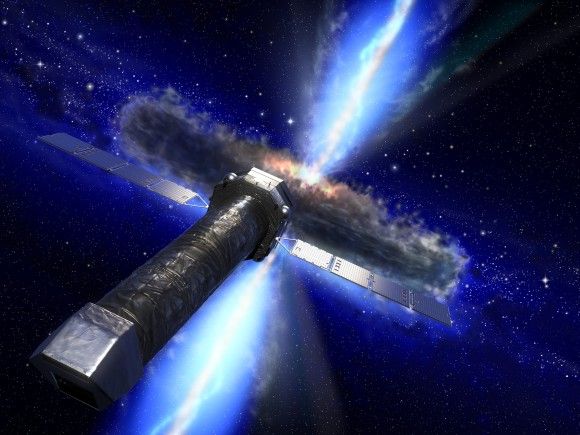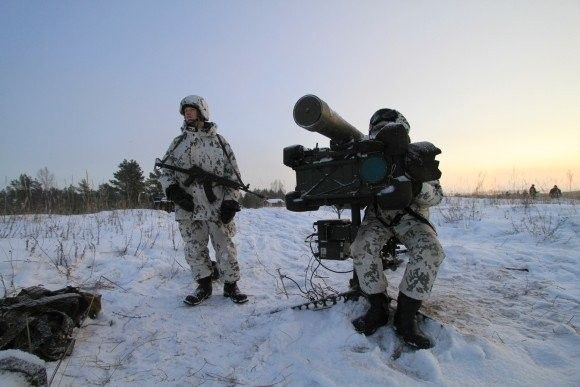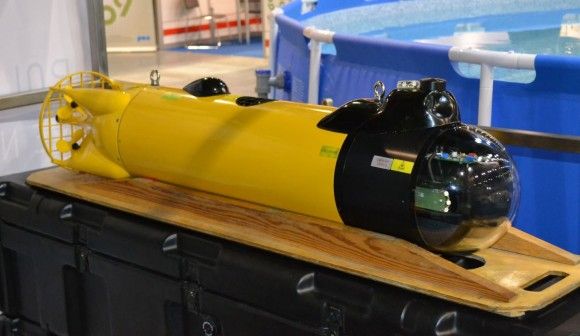Industry
WB Group Celebrates Its 20th Anniversary. “We want to make better use of our experience domestically”
At the end of this year, WB Electronics company will be celebrating the 20th anniversary of initiating its business activities. The beginnings of the said company and transformation thereof into the private, Polish WB Group defence sector entity, as well as the developed armament systems and plans for the future have been outlined in an interview for Defence24.pl, given by the Group’s President and Vice-President – Piotr Wojciechowski and Adam Bartosiewicz.
Andrzej Hładij: In December 20 years will pass, since the founding of the WB Electronics company. During that time, the company has gone a long way - starting as a manufacturer of electronics it has become an integrator of armament of a variety of classes, a capital group, present also on the export market. How do you reflect upon the first two decades of business activities?
Piotr Wojciechowski – President of the Management Board: From our point of view, the last 20 years were full of increasingly more difficult challenges, faced thanks to mobilization of the whole team, we have been breaking infinite barriers in an administrative environment which is not favourable for the private entrepreneurs. The clash of the administrative clerk-like thinking with a new, private and innovative entity which has set a goal for itself not to act as an intermediary, but as a Polish brand, create industrial potential, with an objective of becoming an exporter, has been a great challenge, perhaps for both parties involved. The effect may be witnessed now, as WB Group, as a large, industrial entity, became a relevant and more and more important element of the national security. Our export sales are on the rise continuously, however what pleases us the most is the fact is that we are an important partner and technologies supplier for our foreign customers.
In Poland, we are involved in numerous key modernization programmes pursued by the Polish Armed Forces. The development of our Group is ongoing, and despite the fact that the company is large, the said process is still highly dynamic. This has been achieved thanks to hard work and to the changing attitude of the administration towards new, innovative businesses. However, our employees are the most important creators of our success, many of whom have been working with us ever since the company has been established. Their involvement in our success, supported by patience of their families, allowed us to achieve unity within the whole community of the group. And this is the greatest source of satisfaction for us, after the 20 years that have passed by.
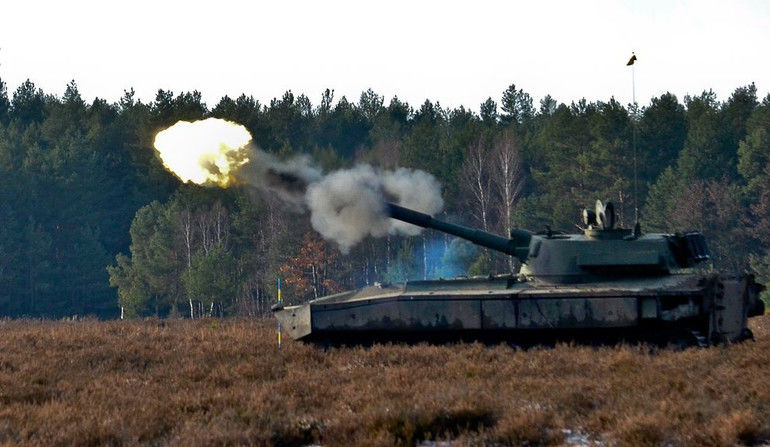
Solidarity social movement, the 1989 transformation, Poland joining NATO, Poland joining the EU - all of these factors have initiated significant economic changes. The feeling of freedom born at the time sparked the beginning of development of the WB Group and is embedded as a sign of the times. It is the best proof of the power and patriotism of the community, forming the WB Group today.
The company has been starting its activities by developing ordnance components, including fire control systems that were used to modernize the post-Soviet artillery assets within the Polish inventory.
Adam Bartosiewicz, Vice-President of the Management Board: Here one should note that TOPAZ was one of the first systems that was symptomatic of a new era in the Army, along with the FONET system coming next. Obviously the aforesaid solutions have evolved a lot throughout the last 20 years, but what’s most important - the concept of operation, expansive functionality, which has been proven by the experiences gathered by the users of the said systems on the actual battlefield, all caused the said systems to be proven in the toughest conditions, which is a source of the good rating for them. Undoubtedly, when we were creating the conceptual design for those products, we were the pioneers in the area of net-centric solutions, not only in Poland.
PW: Yes, however the emergence of the FONET system, not only in the Polish Armed Forces, but also as a system is general, may be a model example of a confirmation of the well known proverb: “Necessity is the mother of invention”. At the beginning of the 1990s the Armed Forces asked us to design a modern system that would support the operations of artillery units, known under the name of TOPAZ. For us, graduates of the Warsaw University of Technology, experts on electronics, this was an interesting challenge. We already had created a Universal Artillery Calculator (UKART - Uniwersalny Kalkulator Artyleryjski), that has automated all of the calculation processes taking place within the artillery units. However, when the said system was being introduced into the operational units, a major need emerged to maintain efficient communications between the crews of the artillery unit vehicles.
Some paradoxical situations have been still emerging - commander giving the orders to fire the weapon by hitting the armour with a hammer, as this was the only method to let the gunner know that he is to fire the weapon. Then we realized, had an “Eureka moment”, that the Armed Forces would need, besides the ballistic calculation support systems, the whole data-transmission and communications suite. This is how the FONET system concept has been born.
One may say that FONET evolved - from being an extra element it was transformed into an independent solution, successfully developed later on.
AB: FONET created a class of such systems on its own, numerous manufacturers around the world treat the said Polish product as a reference point. FONET, within the scope of creating a communications network for vehicles, was setting the global standards and became one of the most frequently acquired systems, globally.
Throughout the 20 years of the Group’s existence, there are a couple of successes of products developed from scratch and having a major impact on the shape of the contemporary battlefield - TOPAZ system mentioned before, our FlyEye UAV or the revolutionary WARMATE system. And I can assure you that during this year’s edition of the MSPO event, as well as in the future, during defence expos abroad, we will be premiering more new, innovative solutions.
Today one may say that WB Group began its existence as a start-up which has grown into a strong defence sector company.
PW: Well, we are still far behind tycoons as Apple or Google, or, to stay within our market domain - Lockheed Martin, BAE Systems or Thales. We are still a company making its way. However, undoubtedly, after 20 years of unstoppable development we have reached a position that places us among the global leaders in some domains, such as the intercom systems and domains, and we are able to, successfully, compete against the market leaders in tendering procedures all around the world.
AB: I can assure you that our enthusiasm is still running strong, we have created a feeling of full identification with the WB Group’s brand in our team consisting of 800 employees, with the most prominent example seen in the new visual branding of the whole Group. What’s even more important is the fact that we have created a branch known by all of the customers and manufacturers of defence systems, and in case of which it is known that it is a brand from Poland.
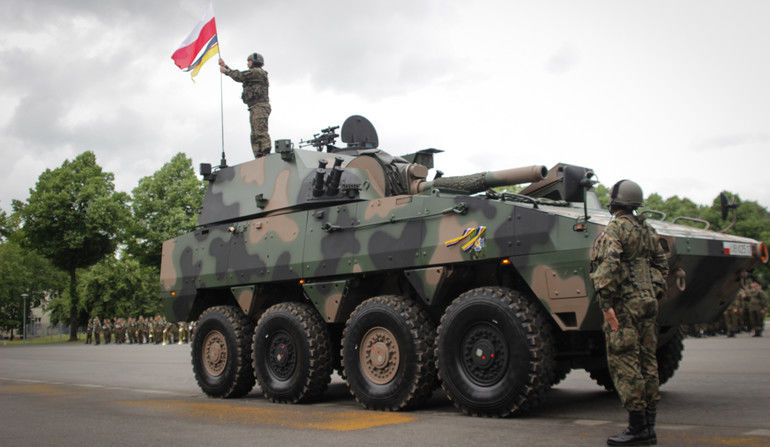
Meanwhile, FONET communications suite is being used by numerous armed forces around the world, including the US military.
AB: One may say that FONET created a breakthrough in the domain of the vehicle-borne communications. This is proven by the fact that shortly after the solution was premiered and introduced into use in the Polish Armed Forces, a leading manufacturer of the American communication suites, Harris Corporation, has come to us, offering to buy a license to manufacture the suite. In the mid-noughties it remained obvious that any of the future conflicts would take place in the information and data driven domain.
The meaning of ICT systems, ranging from datalinks to database management solutions, will also be attaining more and more relevance. And for the Armed Forces, in order to face the challenges on the contemporary, computerized battlefield, it would be indispensable to acquire new, innovative solutions.
What was the approach taken on by the designers, when the internal communications suite was being developed?
PW: Creating the FONET system, we have decided to design our own, unique solutions. Thanks to approach as such we have retained full control over the system also having full freedom, when it came to further development of the solution, as the whole source code has been created locally. Secondly, thinking out-of-the-box we could have offered functions that up until the time when FONET has emerged, were impossible to be included within such solutions. Our FONET IP system fuses the best features of IP and non-IP systems, it is universal, and no limits are imposed on it, when it comes to its usability or scope of application.
This is best proven by the fact that FONET is being license manufactured in three countries, outside Poland, including the United States of America. We are the only Polish company that has transferred military technology to the US, and the systems of whom are being used in combat by the US forces. Annually, thousands of our systems are manufactured and installed on the new and modernized vehicles. At the moment FONET system has been fitted onto more than 6000 vehicles, and this number goes up every day. Last year we have been trying to identify the types of vehicles using the said system - we have counted almost 150 different models. Without any exaggeration one may say that this is a true export hit for Poland, a huge success for the Polish engineers.
Even though FONET and TOPAZ are still being developed, the WB Group is usually associated now with UAVs that are also being exported. What are the key factors, decisive for the capabilities of your UAV systems?
PW: For the user, the “thing that flies” is not the most important, more meaning is ascribed to the delivered information activity, ability of operating in extreme conditions, in presence of jamming and so on. And here, flight control systems, datalinks, sensors, are of key value. In one word: the whole electronics package making it possible for the drone to carry out the tasks assigned by the operator. This requires a whole system, thus we are referring to our solutions as UAV Systems.
We, at the WB Group, deal with development of comprehensive UAV systems, creating operational concepts and concepts for conducting joint operations with other systems: command, reconnaissance, artillery or fire-mission systems. Within that scope the user is trained, and we gather knowledge provided by the customers, on the requirements that need to be met to perfect our systems and make them much more universal.
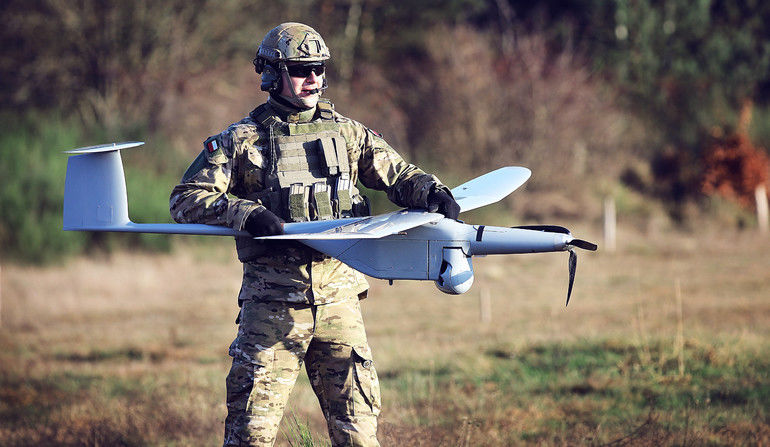
Our UAVs have been used in combat since 15 years now. In Poland we remain the sole exporter and manufacturer of UAV systems. We are also the sole Polish manufacturer, the unmanned systems of whom have been and are accompanying the Polish forces during the foreign deployments. On the basis of the experience gathered during those missions, and the experience gathered by our foreign customers, we know that these systems have been proven to be great in armed conflicts.
They are also used by uniformed services, such as the Border Guard. UAV applications, also in case of the military systems, are not limited solely to military operations.
What also satisfies us is the fact that not only are our RPAs used by the Polish Army, but they also constitute a valuable asset in conflict relief scenarios, they are used in order to locate smugglers and criminals, or for the purpose of inspecting the energy grid or gas pipeline networks, in the process of building highways, environmental protection activities, or within the area of provision of security for the railway network. Our UAV systems have accumulated thousands of hours of combat flight-time, meanwhile our teams are always ready to offer professional aerial observation and surveying services.
What are the main conclusions gathered by the Group, within the scope of UAV operations?
AB: Our experiences seem to confirm the hypothesis that the internal portion of the UAV is decisive on its effectiveness and on its being reliable and market-competitive. Our UAV adventure has also begun by an accident. Once we have designed the TOPAZ artillery fire control system, in turned out that “eyes” that would inspect the effects of the conducted operations would also be indispensable for such suite. The era of an observer sitting on top of a church tower has become outdated a long time ago.
The UAV has turned out to be the best tool for the job. Thus we have decided to integrate the TOPAZ system with UAVs that would make it possible to carry out reconnaissance and assessment of the operations conducted in real time. The beginnings were, I have to admit it, very tough. Our first attempt turned out to be a complete failure. Due to the fact that a foreign partner failed to deliver on the agreement conditions and to provide us with a flying platform, our Hungarian contract has been lost.
This taught us that if we want to be successful, we cannot rely on subcontractors. Instead, we must develop our own solutions and own 100% of the key technologies that are a base for the systems we offer. These assumptions were a foundation of collaboration with the Gliwice-based FlyTronic company which, after several years, has become our centre of competency for UAV systems.
The company employs around 100 professionals who design and develop UAV systems. This is the greatest potential gathered in this domain in our region. Thanks to the above, we are now able to offer reliable UAV platforms that have been operationally proven in all of the climatic zones, and can be trusted on the battlefield in any conditions, even in environments in which strong jamming is employed, on purpose, by the enemy.
WB Group’s UAVs are being operated by the Polish military, obviously, recently they were utilized during a joint exercise with the US Army. Artillery regiments are one of the user groups.
AB: Of course. Around 150 of our UAV platforms are being currently operated by the Polish Armed Forces. Border Guard and other entities also use these systems. FlyEye system has a great reputation, it flies wherever our special forces are deployed, it is being used by the artillery for target designation purposes with the Krab or Rak systems. We have trained almost 200 operators of the FlyEye systems. The said system has been delivered a few years ago, still servicing remains an issue which is unresolved and we do not know how the future would look like.
When it comes to the command and fire control systems, the issues have been resolved. Our command and control systems are being maintained in an ongoing way. New versions are being procured, in line with the needs of the Polish Armed Forces. At the moment, our TOPAZ system is being utilized by all of the artillery units of the Polish Armed Forces. Here we are also referring to the latest products offered by the Polish industry: 120 mm Rak mortars and 155 mm Krab howitzers. I would also like to note that RAK and REGINA programmes (Regina system includes the Krab howitzers - editor’s note), are the best example and proof of beneficial and fruitful collaboration of the Polish defence sector companies.
Back to the issue of drones. Since the time when the procurement procedures concerning the ORLIK and WIZJER UAV systems for the Polish Armed Forces, that have been going on since more than two years, have been cancelled, we do not know whether our products can still be offered for the Polish Ministry of Defence. So it is, that when competition was unable to create offers better than ours in tenders (as in case of the Special Forces Command or Border Guard), effective and unclear lobbying takes place now, along with limitations imposed regulation-wise.
The press reports emerging now are not very optimistic for us. Our capabilities and developmental and manufacturing potential are being grown by us due to the growing interest in our products seen abroad. The reliability of our solutions, great resistance to jamming, perfect quality of the delivered reconnaissance data and effective use of FlyEye platforms in the recent conflicts seems to be the best recommendation for the new customers. Thus we are planning to expand our production capacity in Gliwice, associated with the Flytronic company.
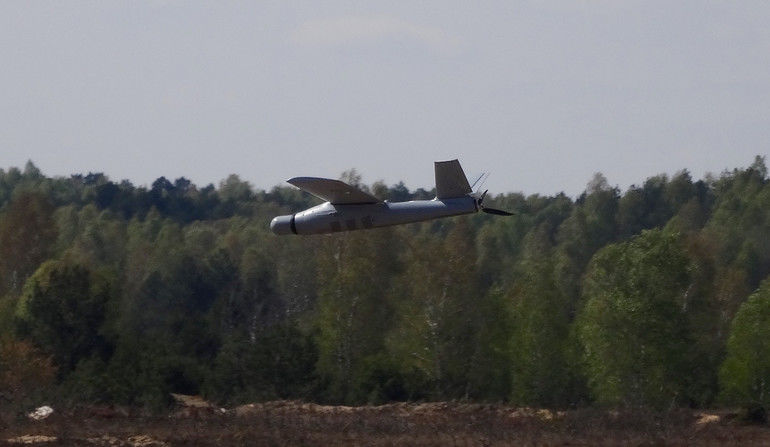
The current leadership of the Polish Ministry of Defence is inclined to place the orders solely with the entities controlled by the Treasury. Some of the acquisition proceedings do not allow for the private companies to participate.
PW: Frankly admitting, I do not understand this decision. We are a Polish entity, entered onto the list of the enterprises having a critical industrial-defence significance. For the WB Group the aforesaid distinction and duty has been ascribed to 3 entities. We also are working on significant industrial tasks, related to national security, we are also a part of numerous consortia, enjoying equal rights with befriended entities of the PGZ group. We are supporting our colleagues from the PGZ companies with all of our expertise, to the best of our abilities.
Our colleagues working at the Polish Armaments Group are working with us, within the scope of the process of implementation of challenging and technically complex military projects. The cooperation in the areas where joint effort takes place is very good, at all levels. We are always ready to, responding to invitations of the Polish Ministry of Defence, offer our very modern products at an affordable price.
AB: Since 2002 we have been delivering UAV systems for customers all around the world. Within that area, since many years, foreign companies play a role of a competitor, especially when we’re speaking of the Israeli entities. A centre for UAV-related competencies has been established by PGZ back in 2016 - and this is a good thing, we are not manufacturing, and we are not going to manufacture, all types of the UAV systems. Any new system, created by a new manufacturer, requires a test programme to be conducted, with verification involved, and, quite frequently, with a painful infancy period during which a variety of defects and design errors shall be rectified.
In what way is the WB Group going to address this issue?
Using the equipment in real combat is the best verification procedure. WB Group’s UAV systems are employed in combat 24 hours a day, 7 days a week. This is the best piece of evidence that we are able to deliver reliable equipment, proven in actual combat conditions. Business rationality is also quite relevant. In order to act as a manufacturer, one needs to sell his products in Poland, as well as abroad, to numerous countries around the world.
Maintaining the production and R&D potentials requires significant outlays, annually. In order to meet the aforesaid requirements, income created by domestic or export sales are needed. State subsidies are an alternative here. We are an export entity - we do not need subsidies and supply the budget with enormous tax amounts. In Israel, a country which is much smaller than Poland, three large UAV-manufacturing entities exist. The Israeli government always selects the best systems: quality-, reliability- and price-wise.
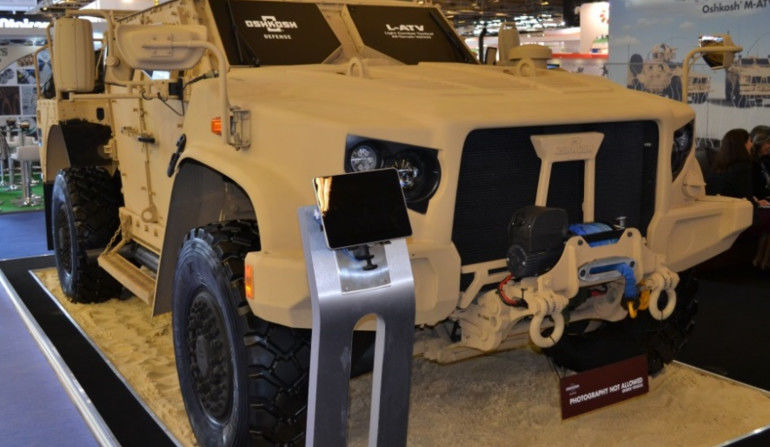
To what extent are the WB Group’s business activities on the export marketplace supported by the Polish authorities?
PW: Coming back to the Polish MoD, I must say that cooperation and support provided within the scope of our business and numerous ongoing projects is very good and substantial. We feel the administrative support every step of the way. The Ministry of Defence, Ministry of Foreign Affairs, Ministry of Development, Ministry of Internal Affairs, President’s Chancellery, National Security Bureau - all these organs support our operations in Poland and abroad. They support promotion of our products and are helping us within the scope of all export-related procedures.
They are treating us on par with the state-governed companies, while all of the diplomatic organs and military offices of the attaches are always there to help us and provide the issue-specific support. We are, for all of the aforesaid entities, we are seen as a Polish subject that represents Poland abroad well.
Despite the above, you are also driven towards expanding your involvement on the Polish market.
AB: We want our enormous experience gathered in the fields of unmanned aerial systems, military communications, C2 and combat solutions, to be used better domestically. So that we can deliver our systems for the Polish military, to provide the Polish Armed Forces with the best and most modern equipment manufactured at a Polish facility and designed by a group of Polish engineers. We remain highly open to any form of collaboration with all of the domestic entities.
We want to, together with the Polish industry, create and deliver the best equipment that may be created in Poland, and we want to see that equipment being used by the Polish troops. The artificial creation of conflicts between the most important industrial groups in the area of defence has a detrimental impact on the national security. This is our stance - our overarching goal is to ensure national security. The WB Group has numerous unique, within the European dimension, technologies to offer. We are always ready to contribute our qualifications and knowledge as an input for any joint projects pursued with our Polish partners.
What are the primary directions of development for the Group, as of now?
AB: Since a few years we have been creating the WB Group. Our goal is to maintain development of the WB Group for the next 2 decades, through retaining the competencies already owned and reinforcement in the area of the manufactured products on the international market.
PW: At the moment WB Group is carrying out a number of export initiatives with a great potential for expansion and development. We are starting to create a footprint on the key foreign markets, establishing our subsidiary companies there. The first of such companies has been established in Malaysia, with more to follow in other countries. We create those companies, as our customers want to establish cooperation with us in a long-term setting, and they are planning implementation of significant projects with us. In the military products area we are going to prepare several new, very interesting proposals, some of which are to be showcased in Kielce, during this year’s edition of the Defence Salon.
We would also like to invite the audiences to visit our booths in London, Kiev and Washington, where debuts of more of our latest products have been planned to take place. We will also develop our competency in the civil domains, within which our skills related to creation of very innovative solutions, making use of the latest developments in the field of electronics, mechanical engineering or information technology, could be utilized. We will explore the domains where reliability, damage resistance, weather resistance and operational endurance play a primary and indispensable role, creating a competitive advantage.
This means that the company would explore further domains, not necessarily defence related.
As a management of the WB Group we may jointly state that we have a plan and we are making it come true. Results are yet to be seen, in a couple of months. The potential gathered among more than 450 engineers is huge, the second decade of our existence starts at a whole other level. Throughout the last 20 years our capitals have been expanded more than 1000-fold, we hope that the next 2 decades will be at least equivalently effective - we know how difficult this is. Please wish us luck for the next 20 years, so that we can meet partners so great and loyal as the ones with whom we are working now - this is the main source of success for the WB Group.
Thank you for the conversation.
Andrzej Hładij

![Fot. TTcomm SA [ttcomm.net]](https://cdn.defence24.pl/2021/01/15/580xpx/2021/01/15/originals/uOxHU5hXIlLToibk236E6DHKp9AHQyYjvwKgHQEU.mb1f.jpg)
